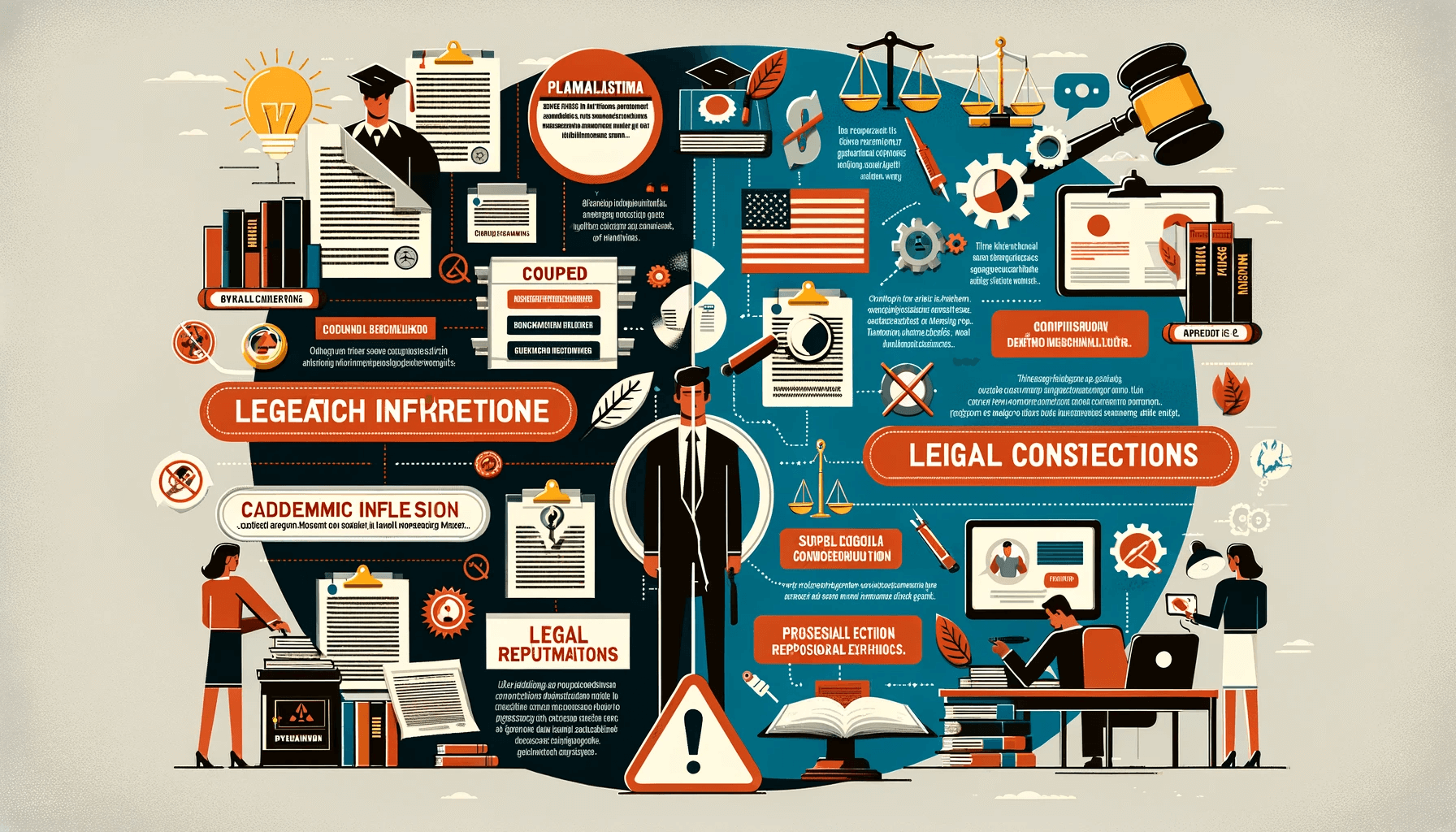Plagiarism, the act of using another person’s words, ideas, or work without proper attribution, is considered a serious ethical concern, especially within academic and professional contexts. In the United States, plagiarism is not a criminal offense under federal law but can have legal ramifications under certain circumstances.
Intellectual Property and Copyright Law
In the realm of law, plagiarism intersects with copyright regulations. Copyright law, as outlined in Title 17 of the U.S. Code, protects original works of authorship, including literary, dramatic, musical, and certain other intellectual works. If plagiarism involves the use of copyrighted material in a way that violates these protections, it may constitute copyright infringement, which is illegal.
Copyright Infringement:
- Definition: Copyright infringement occurs when a copyrighted work is reproduced, distributed, performed, publicly displayed, or made into a derivative work without the permission of the copyright holder.
- Remedies: Victims of copyright infringement can seek legal remedies, which may include injunctions, monetary damages, and, in severe cases, criminal prosecution.
Academic and Professional Consequences
While plagiarism is not a criminal act in itself, it is widely regarded as a violation of academic integrity and professional ethics. Schools, universities, and workplaces have policies that define plagiarism and outline penalties for those found guilty of it.
Potential Consequences:
- Academic Disciplinary Actions: Students may face penalties such as failing grades, suspension, or expulsion.
- Professional Repercussions: Employees or professionals may suffer job termination, loss of reputation, and other career damages.
- Legal Actions for Breach of Contract: In some cases, plagiarism could lead to a breach of contract lawsuit if the act violates the terms of an employment or service contract.
Defamation and False Attribution
Plagiarism may also relate to defamation laws if the plagiarized work attributes false statements that damage a person’s reputation to the individual from whom the work was plagiarized.
Fair Use Exception
It is important to note that not all use of another person’s work constitutes plagiarism or copyright infringement due to the doctrine of fair use. Fair use allows limited use of copyrighted material without permission for purposes such as commentary, news reporting, teaching, and research.
Conclusion: Plagiarism, while not illegal in the traditional sense in the U.S., can lead to legal consequences if it involves copyright infringement or contractual violations. It is also subject to severe academic and professional penalties. Ethical standards and institutional policies play significant roles in defining and enforcing rules against plagiarism.
For guidance on copyright law and its relation to plagiarism, refer to:
- U.S. Copyright Office: https://www.copyright.gov
- Title 17 of the U.S. Code: https://www.law.cornell.edu/uscode/text/17









Leave a Reply